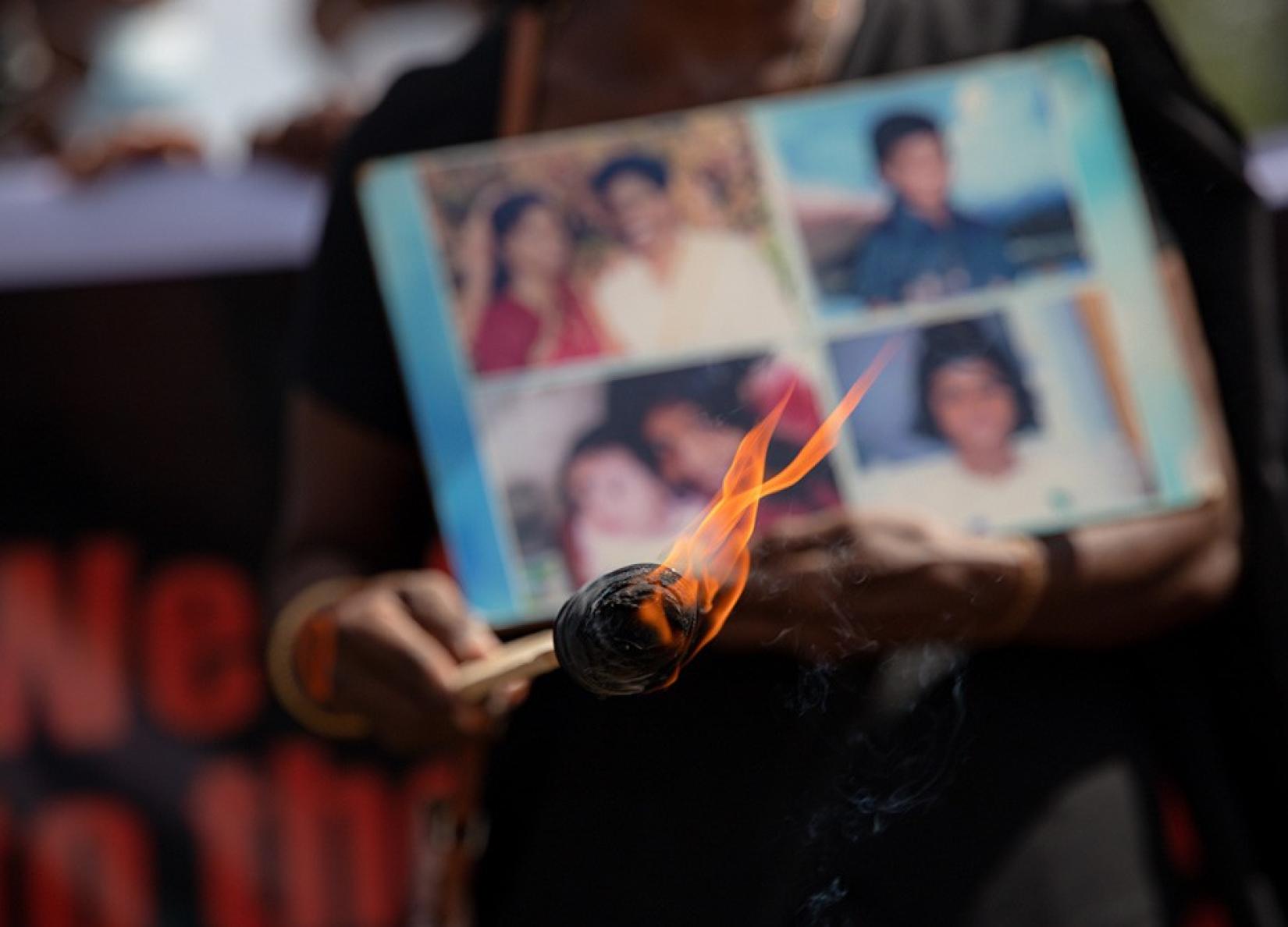Statement by the UN Resident Coordinator in Sri Lanka on the International Day of the Victims of Enforced Disappearances 2024
30 August 2024

As we commemorate the International Day of the Victims of Enforced Disappearances, we are reminded of the critical need to establish the truth and provide effective access to justice to victims of enforced disappearances across Sri Lanka. This day is also an opportunity to renew our pledge that enforced disappearances – a crime under international human rights law – will never be permitted or tolerated.
In Sri Lanka thousands of families of the disappeared have been waiting for decades to learn about the fate of their loved ones. Enforced disappearance is a particularly heinous and complex violation of multiple human rights that creates layers of suffering and damage. The feeling of insecurity generated by enforced disappearances is not limited to the close relatives of the disappeared, but also affects their communities and society as a whole.
Impunity compounds the suffering and anguish of the victims. International experience in tackling forced disappearances has also clearly demonstrated the inextricable link between justice and truth.
Establishing truth and accountability is also closely linked to realising Sustainable Development Goals, notably those aimed at promoting peaceful and inclusive societies, promoting access to justice for all and building effective, accountable and inclusive institutions at all levels.
In the past decade, Sri Lanka has taken some constructive steps towards these objectives, including the ratification of the International Convention for the Protection of All Persons from Enforced Disappearance, the establishment of the Office on Missing Persons (OMP) and the Office for Reparations. However, much remains to be done to ensure victims’ right to truth, justice, and reparations. The OMP in particular needs to fully utilize its broad legal powers of investigation and prioritize tracing of missing persons.
In July this year, authorities completed exhumation at a mass grave site in Mullaitivu in the Northern Province. This is the first major mass grave site to be completely exhumed after the end of the armed conflict. We now hope investigations will be expedited to help provide some answers to families of the disappeared. Swift progress in the Mullaitivu case would help establish confidence and build momentum that may prove helpful in other instances.
The United Nations notes also that victims and human rights defenders often face threats, intimidation, reprisals and stigmatisation in their struggle for truth and justice. Authorities and independent constitutional entities should do more to ensure those seeking justice are not targeted for their legitimate advocacy.
The United Nations renews its solidarity with all victims of enforced disappearances and will continue to advocate for truth, justice and reparations. We also reiterate our support to Sri Lankan authorities including through technical expertise and cooperation to help address this most unwanted legacy.

Between 2016 and 2021, he led the Secretary General’s Peacebuilding Fund in the Peacebuilding Support Office in the Department of Political and Peacebuilding Affairs, investing in over 50 countries worldwide to sustain peace. Prior to this assignment he was Country Director for UNDP in Pakistan from 2013 to 2016, where he led a team working on governance, climate change adaptation and crisis prevention and recovery. He was Deputy Director of UNDP in Haiti from 2008 to 2012 where he oversaw the implementation of programs addressing governance, rule of law reform, improvement of livelihoods and environmental protection notably in the context of the post-earthquake recovery and reconstruction. Between 2004 and 2008, he worked for UNDP in New York as Program Adviser for Conflict Prevention in Latin America and the Caribbean. Before that he worked on applied research and policy dialogue for UNDP in Colombia from 2001 to 2004, and poverty reduction and local governance for UNDP in Bolivia from 1998 to 2001.

